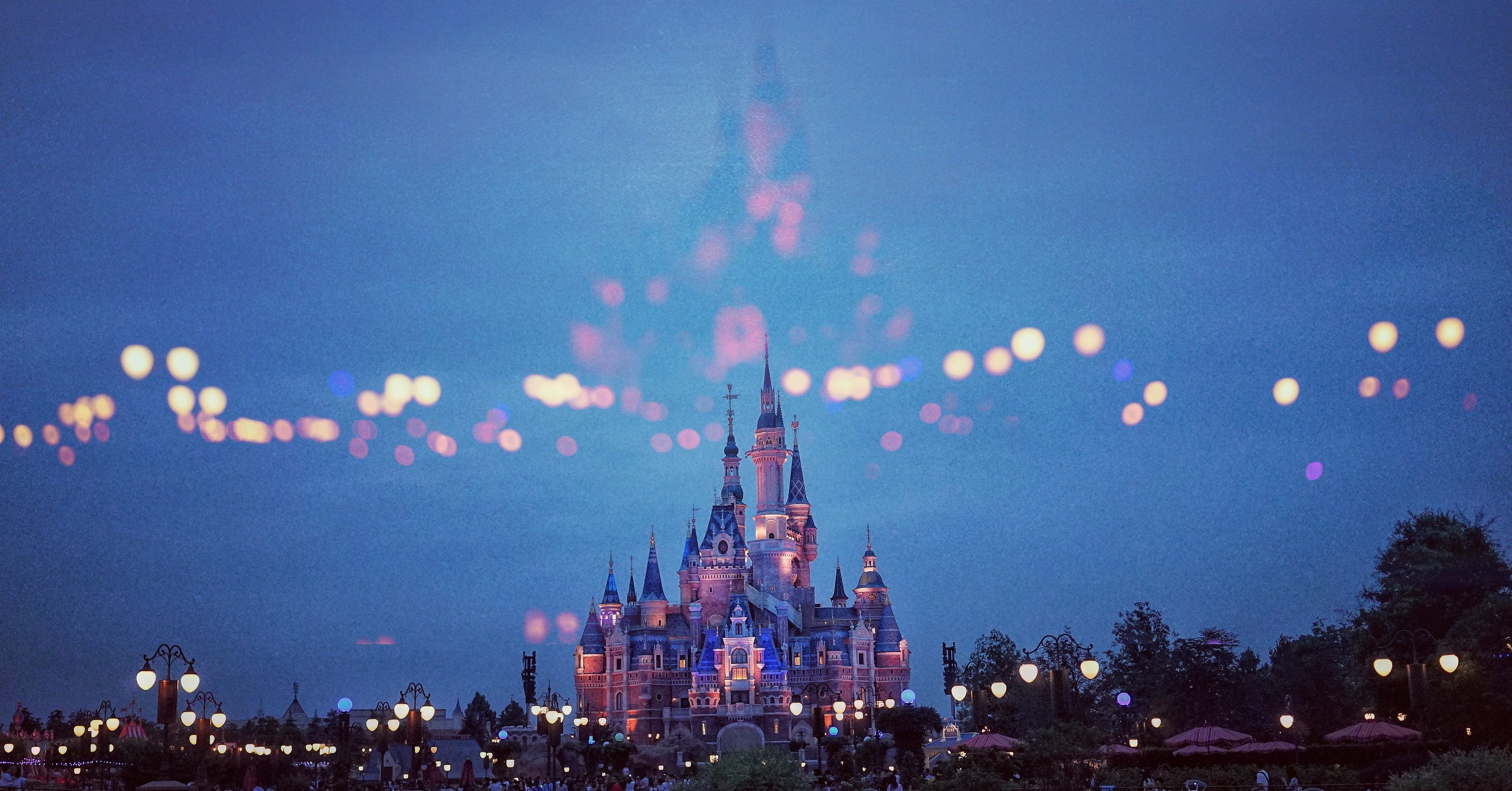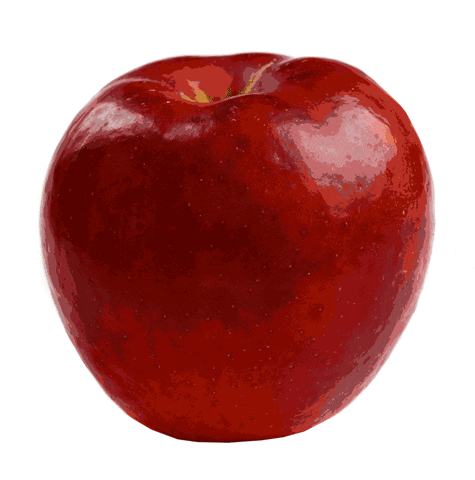The Signal - Disney's century of manufactured magic
Disney's century of manufactured magicThe company has survived by balancing its wholesome, family-oriented image with hard-nosed business strategies.Good morning! How did The Walt Disney Company, which began life as Disney Brothers Studio, go from being an animation upstart to a transgenerational media conglomerate with over 200 companies in its kitty? As the House Of Mouse celebrates its centenary, we bring you an analysis of its cutthroat business strategies. As writer Rebecca Rowe puts it, Disney has successfully “weaponised its association with childhood”. Bonus: our handpicked list of some of the week’s best longreads. If you enjoy reading us, why not give us a follow at @thesignaldotco on Twitter, Instagram, and Threads.
Rebecca RoweThe Walt Disney Company's hundred-year journey from upstart cartoon studio to global media powerhouse reveals important insights into its capacity to shape culture, maintain relevance and navigate an ever-evolving entertainment landscape. As the company embarks on its second century, it's crucial for consumers to see the conglomerate for what it truly is, beyond the enchantment it offers, and to consider its implications for society and the entertainment industry. From its origins in innovative animated filmmaking, it evolved broadly into children's entertainment and survived the passing of founder Walt Disney, while showing remarkable resilience as television and later digital streaming revolutionised entertainment. Disney's longevity and global influence can be attributed to a simple but effective strategy: a commitment to cultivating lifelong consumers. Walt Disney's vision of capturing "the child in all of us, whether we be six or sixty" remains central to the company’s philosophy, transcending sentimentality to become a fundamental business principle. Walt Disney once described his work not as art, but as "show business, the business of building entertainment". True to its founder’s word, the company has become perhaps one of the most effective businesses on the planet, and it has done so while generating an abundance of goodwill and public trust. The quest to capture “everyone” has long been at the heart of Disney’s response to cultural changes. For most of its history, Disney has made content that it feels is relatively neutral, occupying a safe cultural space between conservative and progressive. But as it nears 100, Disney’s tactics have begun to shift, as witnessed in its approach to the US culture wars. Disney has long been seen, for better or worse, as a purveyor of magic and innocence, a reputation intentionally built since its early days. Walt Disney consistently emphasised the importance of offering family entertainment and was uneasy about the notion of children attending films without parental supervision. Consequently, Disney’s content fosters a sense of intergenerational connection. Thanks to this marketing strategy and the company’s enduring connection to childhood and nostalgia, Disney consistently scores the highest brand intimacy of any company in any industry. Targeting each new generation across lifespans – from womb to tomb – the company ensures that its magical image permeates every age. Especially in the US and the UK, Disney's reach is nearly inescapable. Consumers can’t even go to a grocery store without finding Disney characters on products such as bananas and cheese. There are also areas in which Disney operates with little consumer awareness. Through its ownership of more than 200 companies (including Marvel Entertainment, 21st Century Fox and ESPN), many of which carry no overt Disney branding, Disney subtly weaves its influence into the daily lives of millions. These diverse holdings further enable Disney to engage with consumers across lifespans. As soon as a baby is born, it can be put into clothes sold by Disney. Toddlers can watch shows aimed at the youngest viewers (Doc McStuffins, Bluey, Mickey Mouse Clubhouse, Spidey and His Amazing Friends) and play with a seemingly endless array of Disney toys. Children of all ages, of course, are encouraged to watch Disney’s and Pixar’s animated films. For tweens, there is Disney Channel programming (High School Musical, Descendants, The Owl House) and Hyperion Books (publisher of the worldwide phenomenon that is the Percy Jackson series). Through franchises such as the Marvel superheroes and Star Wars, Disney follows its audience as they grow up. Adults (especially Disney adults) can enjoy all of this content and are also catered to in Disney Parks (which have more adult visitors than children), Disney’s Broadway productions, movies from Touchstone Pictures and educational material from National Geographic and the History Channel. Disney content is also designed for passing down from one generation to the next. This strategy of transgenerational media encourages parents to share their media experiences with their children. Perhaps the most visible way Disney encourages the connection between generations is with its theme parks, beginning with the opening of Disneyland in 1955 in California. Some have likened family visits to the parks to religious pilgrimages or rites of passage. Generations of adults have brought their children to the parks, and those children have grown into adults who in turn bring their children, and the cycle continues. But cultural change has once again forced Disney to adapt in order to survive. The company’s confrontation with the state of Florida in 2022 revealed a significant shift: although Disney is one of the largest employers of LGBTQ people in Florida, when Republicans in the state legislature first proposed the so-called “Don’t Say Gay” Bill – which would directly affect Disney cast members and their families by banning any reference to sexual orientation or gender identity in lower school grades – Disney not only did nothing, but it was quickly revealed the company had financially supported one of the main backers of the bill. Following criticism of its silence, Disney very publicly spoke out against the Bill, taking a divisive political stance for perhaps the first time in its history. The move, aimed at safeguarding its reputation, underscores the intricate balancing act Disney performs: maintaining an image as a wholesome, family-oriented media creator while adapting as a competitive, ever-evolving business. The moral of the story, if one can be found, is that Disney has weaponised its association with childhood to build one of the largest conglomerates in the world. Sometimes it uses that power for good, such as in its defence of LGBTQ people and communities in Florida. Other times it uses its power to directly attack anyone who tries to use Disney's intellectual property – or does nothing (as it first tried to do in Florida). If, as Spider-Man’s Uncle Ben tells us, with great power comes great responsibility, Disney has the capability to do so much with the goodwill it has garnered and the business acumen it has generated. It spent a hundred years developing one of the best marketing strategies in the world; maybe it will spend the next hundred using it to make the world a better place. Rebecca Rowe is an assistant professor of children’s literature at Texas A&M University-Commerce and editor of the International Journal of Disney Studies. Her research focuses on the concepts of childhood and adulthood, especially the relationship between children’s media and adult fans. Originally published under Creative Commons by 360info™. TECHTONIC SHIFTThe fall of the house of crypto: It was the next big thing. Until it wasn’t. The great crypto bust of 2022—triggered by a wave of failed crypto projects, shady practices, regulatory crackdowns, and hiked interest rates—wiped off around $2.3 trillion from the market that year. What followed was a depleted Web3 ecosystem and VC enthusiasm for the sector. As the criminal trial of Sam Bankman-Fried—cofounder of the collapsed crypto exchange FTX—unfolds, TechTonic Shift asks two fundamental questions: does crypto have a future? If so, what will it look like? Available on Spotify, Apple Podcasts, Google Podcasts, Amazon Music, or wherever you get your podcasts. ICYMICrunch time: The Biblical fruit, apple, is going through a Biblical crisis. Globalisation is increasingly putting a strain on the supply of apples. Growers are adapting by diversifying their supply chain, expanding apple cultivation to temperate Mediterranean regions. This is made possible by the Hot Climate Partnership, a collaboration between scientists and growers in Spain and New Zealand. The result of this collaboration is Tutti—the world’s first apple variety to be grown in very hot weather. But climate change is proving a headache for Tutti and its ilk as a much warmer Mediterranean is testing the limits of their growth. To add to that, consumer preference for red, crunchy and sweet apples is leading to a complete destruction of genetic diversity in apples. Read this piece in the Financial Times to find out how the $99 billion fresh apple industry is fighting against time and climate to preserve the fruit as we know it. For the clock, against the clock: You may have heard of the circadian clock. It’s our master biological rhythm that regulates sleep-wake cycles in sync with the earth’s rotation. Its role is so significant that people working night shifts are more vulnerable to diabetes and heart disease. Vaccines administered in the day work differently from shots administered in the evening, and it’s riskier to take the painkiller acetaminophen in the evening because liver enzymes that prevent an overdose peter out after dark. As if chronobiology—the science that studies the effect of time on living organisms—isn’t fascinating enough, this moving profile of the woman who’s dedicated her life to it may leave you agog with wonder. In investigating the structures and delicate dances of various ‘clock proteins’, biochemist Carrie Partch has figured out how (seemingly) minute mutations advance or set back our clocks by hours, leaving an imprint on physical and mental health. The irony is that time is working against one of the most prolific timekeepers of our generation: Partch, who’s inspired a slew of chronobiologists, has Lou Gehrig’s disease and has only a few years left to live. Shooting from the hip: The Shooting, Hunting and Outdoor Trade Show, simply known as the SHOT Show, is an expo near the Las Vegas Strip where 2,500 weapon makers exhibit their deadly wares once every year. It is organised by the gun-making industry body, The National Shooting Sports Foundation (NSSF). The SHOT Show is attended by enthusiasts, dealers and buyers from all over the world, helped in no small measure by the US Department of Commerce. Bloomberg Businessweek details how, despite widespread gun violence in their own backyard, the NSSF and the department's Foreign Commercial Service (FCS) help spread gun culture across the world by enlisting politicians and influential individuals in other countries to enact favourable laws. The FCS acts as the de facto worldwide marketing arm for the industry, and the show is part of its International Buyer Program, an initiative to boost US exports. Brazil is the most prominent example of NSSF-FCS efforts paying off. Assiduously cultivated by them, former President Jair Bolsonaro relaxed gun ownership rules within two weeks of coming to power. Dude, where’s my The boxfluencers: Would you be interested in watching two people who aren’t professional boxers punch each other in a ring for entertainment? Believe it or not, it’s a thing. Called crossover boxing, it dates back to 2017 when two YouTubers, Joe Weller and Theo Baker, boxed in a near-empty gym. Why? Because content. Another YouTuber, Olajide “KSI” Olatunji, joked on Instagram that he’d fight the winner. KSI’s resulting fight with Weller was viewed over 23 million times. He eventually co-founded a company called Misfits Boxing in 2021. Its first event, in August 2022, got nearly two million viewers on the streaming network DAZN. Today, crossover boxing is riding a wave of novelty, with pressure to keep innovating. In March, Misfits introduced tag team boxing. Bonkers, right? There’s more in this GQ story on how influencers are entering (and changing) the world of boxing. The great carbon scam: Carbon credits are integral to global plans to achieve net zero. They are also a bunch of horsesh*t. In this magnum opus of an investigation, The New Yorker’s Heidi Blake blows the lid on the world’s largest carbon-trading firm. South Pole may have started with good intentions, but in partnering with unscrupulous broker-developers and carbon traders (most of whom are from dirty energy), it's pocketed millions even as a majority of the credits it issued are useless. In focus is the Kariba project in Zimbabwe, for which Gucci, L’Oréal, Barclays, Nestle, Volkswagen, JetBlue and many other companies purchased offset credits. Contrary to South Pole’s image as a project developer, it’s revealed that Kariba is (mis)managed by Zimbabwean tycoon Steve Wentzel, who’s not only syphoning $$$ into tax havens, but trophy hunting across a project area that’s supposed to harbour wildlife and local communities. We won’t say more, except that you should read and rage against the machine. Did you enjoy today’s newsletter? We accept bouquets or brickbats, whatever you choose to send us, here. Join The Signal Forum on Telegram to know what The Signal community is reading and talking about through the day. Follow us on X and Instagram for fun stuff. Also check out our other newsletters, The Playbook and The Impression. |
Older messages
Against the rising son
Friday, October 20, 2023
Also in today's edition: India's Pixel moment; Welcome to Hotel Gorakhpur; Where the rubber meets the (Belt and) Road; Barnes & Noble reads the room
Unmasking Banksy
Thursday, October 19, 2023
The world's most famous street artist may not be who you think he is.
GPS loses its bearings
Thursday, October 19, 2023
Also in today's edition: Big Brother Gurgaon; Adani's port of call; The dangers of AI in finance; The Tehran problem
Indians make a beeline for Ozempic
Thursday, October 19, 2023
Also in today's edition: Sony wants Disney India; Govt vs. WhatsApp, again; Saudi Arabia fights for MMA supremacy; War spillover on US campuses
Supreme disappointment
Thursday, October 19, 2023
Also in today's edition: BluSmart Grabs an opportunity; Dirty tricks for climate finance; China lays familiar trap for Nepal; White collar automation is here
You Might Also Like
‘We found the thing that gives us joy’: Microchild on the microverse, music, and shared language
Wednesday, March 12, 2025
The wife and husband pair of Shannon Sengebau McManus and Jonathan Camacho Glaser are souls behind the band Microchild. ͏ ͏ ͏ ͏ ͏ ͏ ͏ ͏ ͏ ͏ ͏ ͏ ͏ ͏ ͏ ͏ ͏ ͏ ͏ ͏ ͏ ͏ ͏ ͏ ͏ ͏ ͏ ͏ ͏ ͏ ͏ ͏ ͏ ͏ ͏ ͏ ͏ ͏ ͏ ͏ ͏
🦅 Reminder: Masterclass with Jesse Pujji
Tuesday, March 11, 2025
At 1:00 PM Eastern Time (US and Canada) ͏ ͏ ͏ ͏ ͏ ͏ ͏ ͏ ͏ ͏ ͏ ͏ ͏ ͏ ͏ ͏ ͏ ͏ ͏ ͏ ͏ ͏ ͏ ͏ ͏ ͏ ͏ ͏ ͏ ͏ ͏ ͏ ͏ ͏ ͏ ͏ ͏ ͏ ͏ ͏ ͏ ͏ ͏ ͏ ͏ ͏ ͏ ͏ ͏ ͏ ͏ ͏ ͏ ͏ ͏ ͏ ͏ ͏ ͏ ͏ ͏ ͏ ͏ ͏ ͏ ͏ ͏ ͏ ͏ ͏ ͏ ͏ ͏ ͏ ͏ ͏ ͏ ͏ ͏ ͏ ͏
[Webinar tomorrow] Canadian? How to Grow Your Amazon FBA Business as a Canuck
Tuesday, March 11, 2025
Hey Reader, Are you a Canadian? No? Well, you should never skip a single line on an EcomCrew email but this is one exception and you can continue with your day. Yes? Then congratulations on hitting the
The state of ad serving for brands and agencies
Tuesday, March 11, 2025
How ad-serving technology is changing and unlocking new opportunities
♟️ OpenAI's smart chess move!
Tuesday, March 11, 2025
Guess who's sweating?
March Madness is here: Tap into the hype with these marketing plays
Tuesday, March 11, 2025
And more insights to drive smarter social strategies and ROI ͏ ͏ ͏ ͏ ͏ ͏ ͏ ͏ ͏ ͏ ͏ ͏ ͏ ͏ ͏ ͏ ͏ ͏ ͏ ͏ ͏ ͏ ͏ ͏ ͏ ͏ ͏ ͏ ͏ ͏ ͏ ͏ ͏ ͏ ͏ ͏ ͏ ͏ ͏ ͏ ͏ ͏ ͏ ͏ ͏ ͏ ͏ ͏ ͏ ͏ ͏ ͏ ͏ ͏ ͏ ͏ ͏ ͏ ͏ ͏ ͏ ͏ ͏ ͏ ͏ ͏ ͏ ͏ ͏ ͏
ET: March 11th 2025
Tuesday, March 11, 2025
Exploding Topics Logo Presented by: Exploding Topics Pro Logo Here's this week's list of rapidly trending topics, insights and analysis. Topic #1 Gruns (trends) Chart Gruns is a DTC startup
If SEO is dead…
Tuesday, March 11, 2025
Here's a surefire way to fall behind your competition: Declare SEO as dead and stop optimizing your content. Sure, the strategies that worked five years ago may not work today, but businesses that
Niche = $$$
Tuesday, March 11, 2025
Why Your Tiny Newsletter Could Be an Advertiser's Dream
The Founder Institute targets first VC fund
Tuesday, March 11, 2025
Startups join the M&A big leagues; Hinge Health files for IPO; stablecoin surges with regulation in play; VC-backed IPOs give up post-election gains Read online | Don't want to receive these



